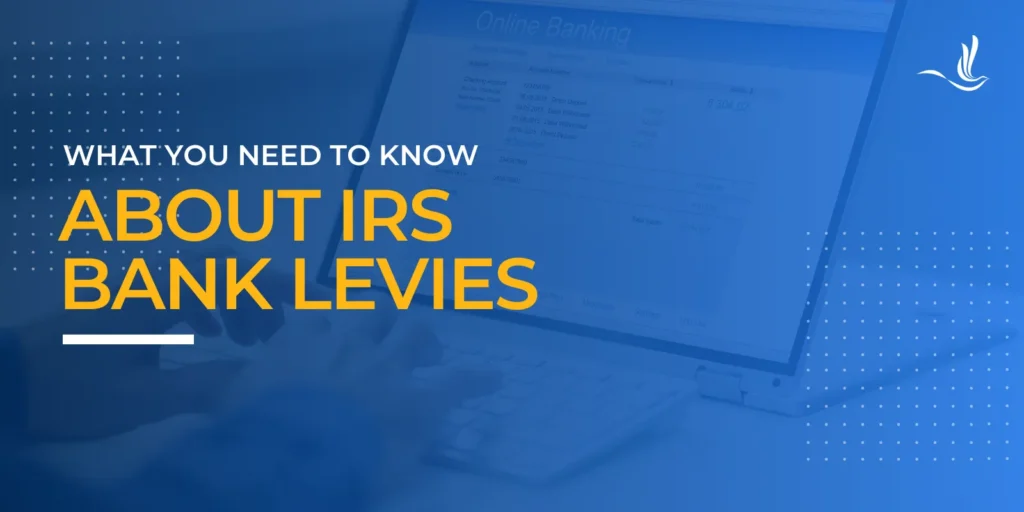When dealing with unpaid taxes, one of the most significant and immediate consequences can be an IRS bank levy. This action allows the IRS to legally seize funds directly from your bank account to satisfy outstanding tax debts. Understanding how an IRS bank levy works, how it can be avoided, and the steps to take if you’re facing one is crucial for anyone in financial trouble with the IRS.
How Does an IRS Bank Levy Work?
An IRS bank levy is a legal mechanism the IRS uses to collect unpaid taxes. Unlike a wage garnishment, which takes money from your paycheck over time, a bank levy can seize the full balance in your account up to the amount of tax owed.
IRS Bank Levy Process
- IRS Notice: Before placing a bank levy, the IRS must send you a series of notices. The most critical is the Final Notice of Intent to Levy and Notice of Your Right to a Hearing (also known as Letter 1058 or LT11). This notice gives you 30 days to either pay your debt or arrange an alternative.
- Bank Hold Period: Once the levy is issued, your bank will place a hold on the levied amount in your account for 21 days. This hold gives you time to resolve the issue before the funds are transferred to the IRS.
- Seizure of Funds: If the debt isn’t settled within those 21 days, the bank will release the funds to the IRS. The levy continues until the full amount owed is collected or the levy is lifted.
What Types of Accounts Can Be Levied?
The IRS can levy funds from several types of financial accounts, including:
- Investment accounts (with special rules)
However, the levy only applies to funds available at the time the bank processes the levy. Future deposits are not immediately subject to the same levy unless the IRS issues a new one.
Steps to Take If You’re Facing a Bank Levy
If you’ve received a Final Notice of Intent to Levy, don’t ignore it. Acting quickly can help prevent the levy or minimize its effects. Remember, you have the right to request a Collection Due Process hearing within 30 days of receiving the final notice. This can temporarily stop the levy while the IRS reviews your case. Apart from this, the most straightforward way to avoid a levy is to pay the amount owed in full. If you can’t pay the entire debt, consider other options like an Installment Agreement or Offer in Compromise. If a levy would cause you significant financial hardship, you can request that the IRS release the levy. You’ll need to show that the levy prevents you from meeting basic living expenses. Navigating an IRS bank levy can be complex. A tax professional can help you negotiate with the IRS, request a hearing, or explore settlement options.
How to Avoid a Bank Levy in the Future
To avoid facing an IRS bank levy, it’s important to stay on top of your tax obligations and address issues promptly. Here are some tips:
- File on Time: Even if you can’t pay your taxes, file your return on time. The IRS is more likely to work with you if you file, even if you owe.
- Communicate with the IRS: If you receive notices about unpaid taxes, respond promptly. You may be able to set up a payment plan or find other solutions before enforcement actions like a bank levy are taken.
- Stay Current: If you’re already on an installment plan or settlement agreement, make sure you stay current with your payments. Falling behind on these arrangements can trigger a levy.
Tax Help for Those Being Levied by the IRS
An IRS bank levy can be a serious financial disruption, but it’s not inevitable if you act early. Understanding the process and knowing your options can help you prevent or address a levy before it causes long-term damage. If you’re facing a levy, consider seeking professional assistance to navigate the process and explore potential relief options. Optima Tax Relief is the nation’s leading tax resolution firm with over a decade of experience helping taxpayers with tough tax situations.
If You Need Tax Help, Contact Us Today for a Free Consultation
Publisher: Source link











